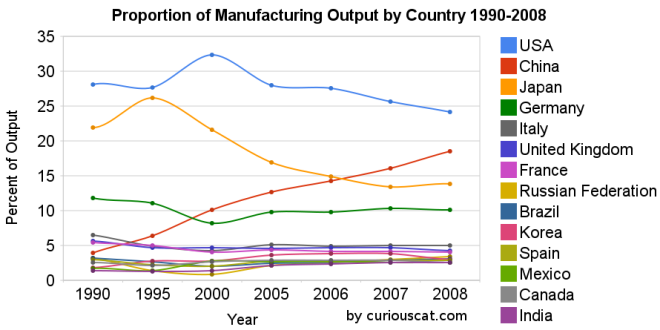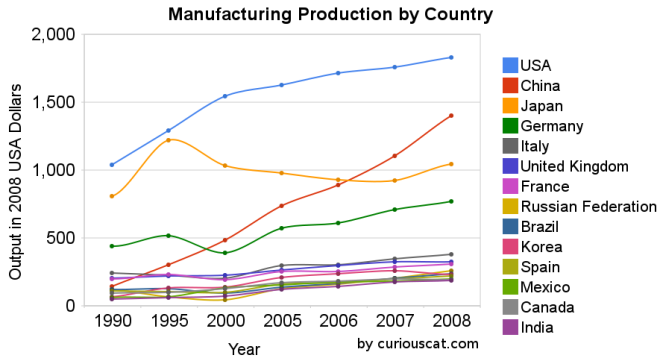JHZR2
Staff member
Originally Posted By: CivicFan
The WTO rules set caps on tariffs. In global trade, tariffs can have unintended, destructive consequences because trade is multilateral.
September 12, 2009, US wants to impose tariffs on Chinese tires
September 13, 2009, China moves to retaliate against US tariffs on tires
I love the second link...
It shows:

And then...
Quote:
the United States buys $4.46 worth of Chinese goods for every $1 worth of American goods sold to China
Quote:
“Why did our government purchase so much U.S. government debt?” said one posting signed by a “Group of Angry Youths.” It continued, “We should get rid of all such U.S. investments.”
Quote:
weekend of nationalistic vitriol against the United States on Chinese Web sites in response to the tire tariff. “The U.S. is shameless!” said one posting, while another called on the Chinese government to sell all of its huge holdings of Treasury bonds.
Id much rather be holding chickens than tires. They can keep their tires, but given water pollution and arable land issues... well...
I find the argument on part of China to be irrelevant, given the magnitude of difference...
The WTO rules set caps on tariffs. In global trade, tariffs can have unintended, destructive consequences because trade is multilateral.
September 12, 2009, US wants to impose tariffs on Chinese tires
September 13, 2009, China moves to retaliate against US tariffs on tires
I love the second link...
It shows:

And then...
Quote:
the United States buys $4.46 worth of Chinese goods for every $1 worth of American goods sold to China
Quote:
“Why did our government purchase so much U.S. government debt?” said one posting signed by a “Group of Angry Youths.” It continued, “We should get rid of all such U.S. investments.”
Quote:
weekend of nationalistic vitriol against the United States on Chinese Web sites in response to the tire tariff. “The U.S. is shameless!” said one posting, while another called on the Chinese government to sell all of its huge holdings of Treasury bonds.
Id much rather be holding chickens than tires. They can keep their tires, but given water pollution and arable land issues... well...
I find the argument on part of China to be irrelevant, given the magnitude of difference...


